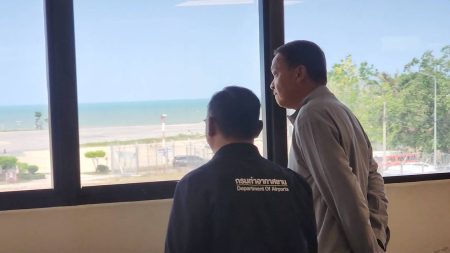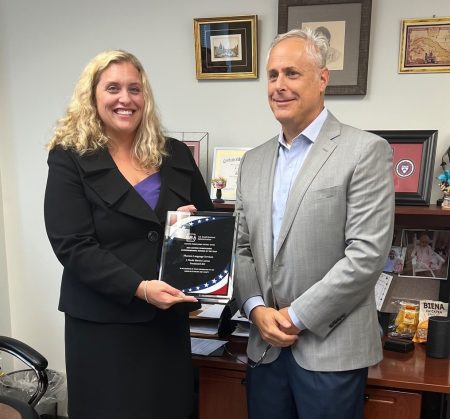Even though not everyone gets to work in the exclusive world of high finance, many will understand author Carrie Sun's analysis of burnout.
In her new autobiography, Private Equity, the former numerical equity analyst recounts her experience as assistant to the founder of one of the world's most successful hedge funds.
Ironically, she took the job to achieve a better work-life balance and had planned to write in her free time. But she ended up with no free time at all.
She quickly went from loving the job to feeling overwhelmed by it. The feeling of being always on, constantly interrupted, and ignored when asking for help led to issues like disordered eating and injury.
One late night in the office gym, she checked a message while running on a treadmill and ended up in the hospital.
As her workload increased, her ability to recharge herself suffered. No amount of spa days or expensive therapies from her boss helped because the workload was even greater when she returned.
Naturally, she left.
The World Health Organization classifies burnout as an occupational phenomenon, not a medical condition. It is the result of prolonged workplace stress that has not been effectively managed.
It describes it as feelings of energy depletion or exhaustion, negativity or cynicism towards one's job, and reduced professional effectiveness.
Research indicates that several factors contribute to workplace disengagement, including unclear expectations for your role, lack of development opportunities, and a feeling that your opinions are not valued.
In recent years, Gallup's research has shown declining levels of workplace engagement, especially among young millennials and Gen Zs.
Last year, it found that employees in the US feel more disconnected from their employers, with less clear expectations, lower satisfaction with the organization, and less connection to its mission or purpose compared to four years ago. They are also less likely to feel cared for as individuals in the workplace.
Around half of employees are disengaged––or quietly leaving their jobs, it discovered.
Among the most common causes of burnout, which can result in either leaving the job or becoming disengaged while staying, are feelings of being treated unfairly, unmanageable workload, intense time pressure, and poor managerial communication or support.
Carrie Sun's boss suggested that she take a break to recover from her burnout, instead of addressing its underlying causes. However, research suggests that taking time off can actually worsen the situation.
According to a nationwide survey, many people feel drained upon returning to work after breaks and vacations, with 42 percent dreading going back and 50 percent experiencing burnout within one week of returning.
Despite this, only 8 percent of respondents reported that their employer had measures in place to address employee burnout.
Many people turn to energy management techniques to cope. The same survey found that exercising, prioritizing self-care, and listening to music are the top strategies used to combat burnout symptoms.
It also discovered that a large part of the workforce is actively setting goals to deal with burnout. One out of every six employees had made New Year’s resolutions specifically focused on preventing or managing burnout, with Gen Z leading at 26 percent.
Managing your personal energy is based on knowing that time is fixed but energy can be increased. Getting sufficient sleep, eating well and exercising all help, as well as changing the way you work: learn to prioritize, delegate and refuse.
Look for labor-saving AI tools and use them to your advantage. Be more aware of the things that either drain or boost your energy. Maybe you’re most productive in the early morning, or a night owl who prefers to start late and work late. Personally, adopt a lean business mindset, searching for ways to eliminate practices that use up your energy unnecessarily.
If none of this works, do what Carrie Sun did and leave.
While European-style right to disconnect laws may not have become popular here yet, you can seek out employers who prioritize workplace wellbeing and have the policies to support it. You never know, you might even write a bestseller about the change.
If you’re in the market for a new job, The Hill Jobs Board is the place to start looking. Here are three to get you going.
Arctic Campaign Director, Alaska Wilderness League, Washington DC
Work with a purpose. The Director of the Arctic Defense Campaign will lead collaborative work to protect the Arctic National Wildlife Refuge and the Western Arctic (National Petroleum Reserve – Alaska) from harmful oil and gas development.
Lead Data Warehouse Engineer, Beyond Finance, Chicago
Beyond Finance’s goal is to help everyday Americans escape the endless cycle of crippling debt. Enjoy mentorship, catered lunches and a free fitness center as its Lead Data Warehouse Engineer.
Executive Assistant, Tribal Tech LLC, Alexandria
Tribal Tech is a Native American, woman-owned small business providing professional services. It is looking for an Executive Assistant to provide high-level and comprehensive support at its client site in Washington, D.C.









